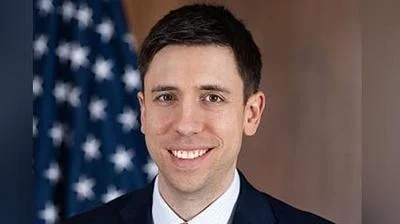One of the state’s most respected fiscal watchdogs is warning taxpayers to be on the lookout for legislation in Springfield that would give new life to the practice of “pension spiking” for public school teachers.
“We have to watch that this bill (SB3622) isn’t buried in some other piece of legislation and sent to the governor during the veto session,” Mark Glennon, founder and executive editor of Wirepoints, told Prairie State Wire.
The veto session is scheduled to run Nov. 13-15 and 27-29.
Pension spiking most commonly occurs when teachers and other school district employees are given raises in their final years of employment (the average salary of those years is used to determined pension levels) to boost their monthly retirement payouts.
“It’s a way of taking care of your buddies,” Glennon said.
The General Assembly sought to restrict the practice when it approved legislation in 2005 that required the locals to pick up the pensions costs of any salary increases over six percent granted during the final years of employment. Seeing the change wasn’t stemming the practice, the General Assembly reduced the restriction to three percent in May.
In late July, state Sen. Dale Fowler (R-Harrisburg) and state Sen. Neil Anderson (R-Moline) filed SB3622 on behalf of the state’s largest teacher’s union, the Illinois Education Association (IEA), to revert to the higher six percent figure. Glennon notes that both lawmakers have sizable numbers of public sector employees in their districts.
In a news release issued a day after the bill was filed, IEA said that Gov. Rauner and the Illinois General Assembly “did a disservice to our educators by capping end-of-career benefits at three percent.”
IEA went on to quote Fowler saying that the three percent cap only worsens a teacher shortage problem in the state.
Glennon was incredulous.
“We need spiking for older teachers to attract new ones?” Glennon wrote in reaction to the legislation. “Or they will leave if they can’t spike? Seriously?”
IEA also claimed that the lower cap deters “teachers from furthering their education and taking on additional coaching or tutoring roles.”
Glennon wrote: “What? Should pay increases and resulting pension increases be given at all to teachers getting advanced degrees just before retirement? And, if they take on additional coaching or tutoring roles in just those years, should that really drive up their pension?”
State Rep. Allen Skillicorn (R-East Dundee) told Wirepoints that “SB3622 is an example of the shameful special interest greed in Springfield that is bankrupting our state. In 2018 we changed the law to discourage school districts from spiking pensions. Now the IEA wants to change it back just weeks after it went into effect.”
“I will be a HELL NO on this bill or anything like it!” he wrote. “Anyone that publicly supports spiking pensions is out of touch with mainstream Illinoisans.”
The six percent restriction originally enacted by the General Assembly barely made a dent in the practice, the Illinois News Network (INN) reported back in July.
“Illinois school districts continued to pad pensions for retiring educators amid a two-year budget impasse and despite concerns about the state's growing pension debts,” Greg Bishop of INN wrote.





 Alerts Sign-up
Alerts Sign-up